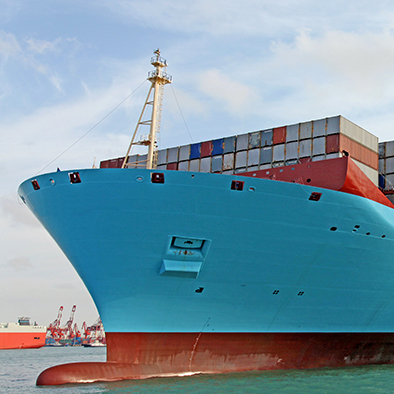Three Imperatives for Managing Carrier Rate Selection

The annual freight rate contract negotiation process is underway, and it is imperative that shippers fully evaluate their carrier options, utilizing knowledge of historical changes and past performance in their trade lanes.
The complexity of freight rate contracts places a strong burden on shippers and NVOCCs to comprehensively understand the proposed rates and surcharges, including any exclusions or exceptions.
Reconciling all of these factors in the carrier rate selection process is a difficult objective for both the partners receiving RFPs to quote, and those reviewing responses.
In addition, understanding the carrier’s historical on-time performance for a lane is a key factor in deciding whether to award the carrier volume for that lane.
So, how do you ensure your global shipments are contracted with a cost-effective and reliable provider? How do you quickly and accurately quote lanes in an RFP or analyze the response to an RFP? When seeking answers to these questions, shippers and NVOCC’s should consider the following as imperatives for managing carrier freight rates.
1. Standardize and centrally manage carrier contracts
Carrier contract formats and verbiage regarding the conditions for applying tariff surcharges vary greatly. Converting various textual contract formats into a standard structure, where services can be easily compared across carriers, enables a solid foundation for centralized management and cost comparison. What this means for your company is a simplified and more efficient process for accessing accurate, fully calculable surcharges and rates to identify the best options.
2. Lock in surcharges to prevent unforseen cost increases
Understanding the variability of each of the many accessorial charges - and applying specially negotiated business rules - adds another layer of complexity when preparing and reviewing RFP responses. Accessorials should be negotiated as inclusive whenever possible to prevent increases due to conditions such as peak season surcharges and general rate increases. When negotiating fixed surcharges, utilize reporting tools to better understand historical fluctuation trends for surcharges over time. This is critical information for determining the level at which a charge should be locked in.
Best Practices to Reduce International Freight Spend
Choosing an ocean carrier is not as straightforward as simply selecting the lowest cost route. A shipper must also consider factors such as departure and arrival dates, and carrier reliability and service levels. With multiple carrier contracts, a shipper must sort through a complex array of lanes and rates to make the best decision.
Challenges include:
-
Efficiently comparing and analyzing rates and routes to find the best option
Securely and efficiently submitting booking requests and receiving confirmation
- Conveying preferred carriers, routes, and other guidelines to a third-party using a routing guide
Download the Paper: Best Practices to Reduce International Freight Spend
3. Understand past performance for future improvement
Another key factor for committing shipping volume to a provider is understanding the past on-time performance and space availability for each lane. By comparing the on-time delivery metrics to the committed transit times, you can determine which provider can most reliably deliver your shipments on time and prevent bottlenecks throughout the supply chain.
In addition, assigning carriers to a routing guide ensures that your organization executes against the plan by utilizing the preferred carrier with the best rate and service options available.
Keep these imperatives in mind to establish goals for your carriers, make informed contract decisions with your providers, and define service level objectives for the coming term. Over the course of your contracts, these imperatives also set a foundation for continuous improvement programs and feedback into future sourcing decisions.
Finally, you will be able to accurately analyze the RFP process, improve contracting decisions, and, ultimately, secure the best carrier with the best service for your requirements.
Article Topics
Amber Road News & Resources
Logistics Platforms: Ways Companies Can Win In the Digital Era Ethical Sourcing – The Business Imperative (and Advantage) How Rules of Origin Really Do Make a Difference for Sourcing Practices E2open’s acquisition of Amber Road is a done deal E2open Completes Acquisition of Amber Road Bridging the Data Gap Between Sourcing and Logistics Medical Technologies Company Remedies Complex Compliance Operations More Amber RoadLatest in Supply Chain
A Look at Baltimore’s Key Bridge Collapse—One Month Later European Parliament Passes New Law Requiring Supply Chain Accountability Baltimore Continues Bridge Recovery With Opening of New Channel How Shippers Can Prep for Hurricane Season Apple Accused of Multiple Human Rights Violations South Korea Finally Overtakes China in Goods Exported to U.S. UPS Struggles in First Quarter With Steep Earnings Decline More Supply Chain













